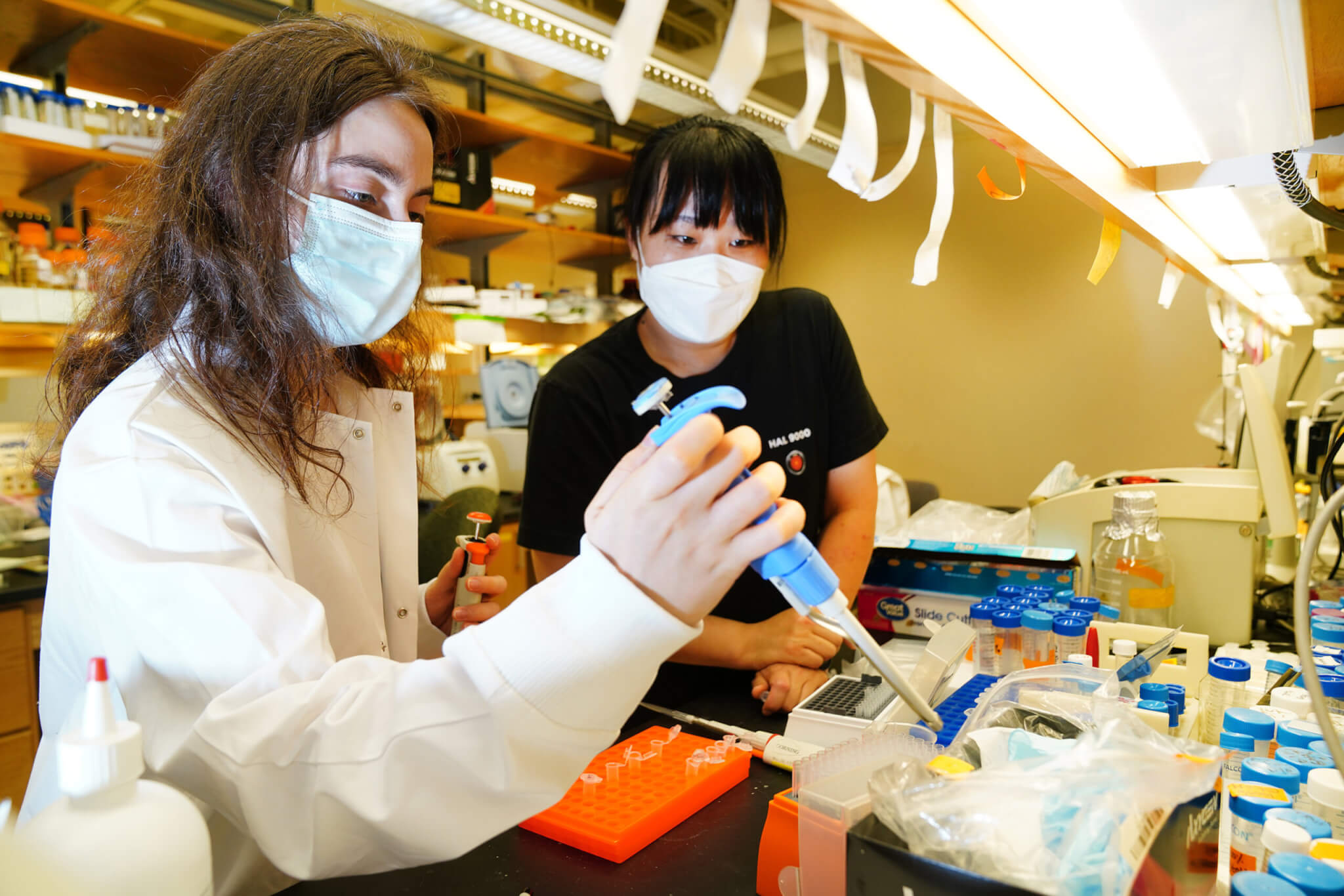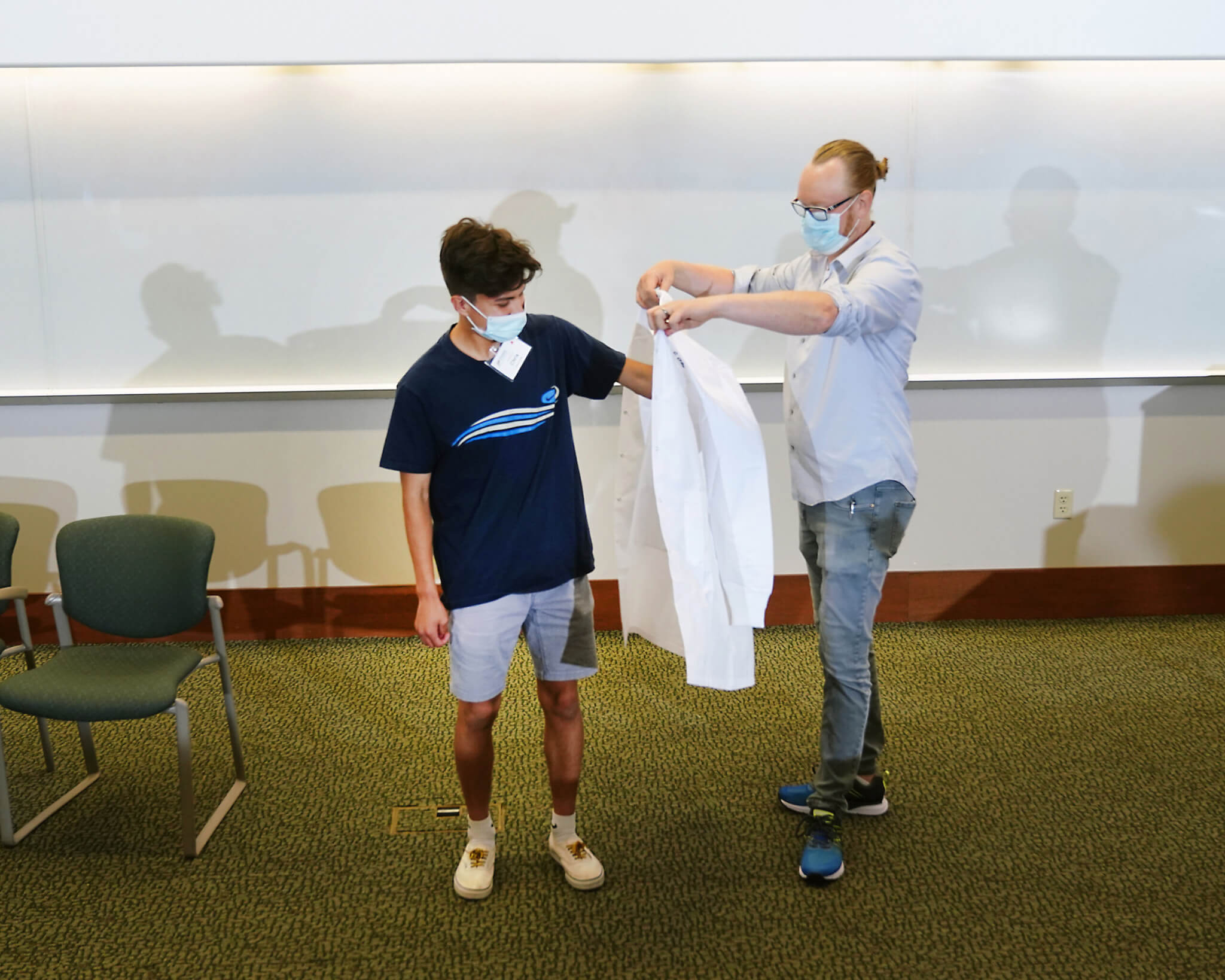Summer research sows seeds of interest in agricultural sciences
“I was a first-generation student who was smart enough to get into the University of Nebraska-Lincoln, but once I got there I was overwhelmed, had no clue how the system worked and I felt that I didn’t belong,” Josh Widhalm, assistant professor of horticulture and landscape architecture said. “It was only after my own experience of working in a laboratory as an undergraduate that I started to become more confident in myself.”
Widhalm’s undergraduate experience is one of the reasons he serves as a faculty mentor for Purdue Agriculture’s Molecular Agriculture Summer Institute (MASI). The program introduces local high schoolers to agricultural research, careers and lab environments. The program kicks off with a white coat ceremony where students received their own lab coat.
“This ceremony is to highlight the start of their research career,” Katie Dilley, academic program initiatives recruitment and outreach coordinator and MASI coordinator, said. “Our hope is to continue to draw more local students to the institute each year who know Purdue from growing up close by but may not know the opportunities available in agriculture.”
The week was packed with research and educational opportunities related to agriculture, but it also included summer fun like kayaking and fountain runs.
Students who worked with Widhalm, for example, learned about the way plants use chemicals to interact with their environment. Students participated in a lab experiment where they test the ability of juglone, a chemical produced by black walnut trees, to impede the growth of other plants.
“We found that jugalone stunted the growth of the plants, and we figured that juglone could be applied as a new, natural pesticide for farmers,” Chris Urbine, a MASI student, said. Working in labs with people like Widhalm opened Urbine’s eyes to a career path in agriculture. “I realized that there was more to agriculture…. I saw there was more food, plant, life and technological sciences behind it.”
Sila Yesilyurt, another MASI student, said the program also opened her eyes to the possibilities of a STEM career in agriculture. She recently moved with her family to West Lafayette and said she wanted to find a way to meet people and have a productive summer – MASI helped her achieve this.

part of the summer program.
Photo by Tom Campbell.

beginning of the week.
Photo by Tom Campbell.
“I moved to Indiana during the pandemic, so I didn't have much chance to engage in social activities. MASI was the perfect opportunity this summer because it offered both social and academic opportunities,” Yesilyurt added.
From lab work to picking the brains of undergraduate Purdue students, MASI also offered recreational firsts for its students.
“I never imagined myself kayaking for the first time during this program, but I did,” Yesilyurt continued.
Dilley said kayaking with the students was a highlight of the program for her as well.
“Seeing the students help each other when stuck, learning how to navigate, checking out the wildlife and getting outside was a really great experience,” she said.
Widhalm added that for him, one of the most rewarding experiences was watching students adapt to lab work and quickly gain confidence. “As the students become more comfortable in the lab setting, more confident in their own abilities, and more accepting of embracing the experience, they start to engage more,” he reflected.
Both Urbine and Yesilyurt said while they had both been previously interested in STEM fields, they are now seriously considering pursuing careers in agriculture, ideally at Purdue.
“I’m considering biochemistry or agricultural engineering as two field choices,” Urbine said.
From Dilley’s perspective, this is an ideal outcome. She worked hard to offer it this year in a way that was safe and engaging. Her hope is that the program continues to grow.
“Programs like this are important for attracting students because they really get to experience what life is like as a scientist at a prestigious research university, specifically within the field of agriculture,” Dilley added.





